#russian powerhouse
Text

194 notes
·
View notes
Text
Geopolitics is not what you think.
It is interesting to me that how we view issues of global politics and how academics and certain political actors view the issues have such a huge separation.
For instance, when people view the russian invasion of ukraine, they think of a simple power grab, or they don't understand why russia would want to do that.
When i was talking to a friend, who is a geopolitical expert, about the russian war against ukraine, he pulled out a topographical map of europe. Geopolitics is the study of how geography affects politics. it is NOT a general term for international politics.

The easy answer is Russia's need for a warm water port. If you know russia's borders, you would know that all of it's major ports are in the north and they freeze in the winter. They don't have a good port in the black sea that stays unfrozen. Sevastopol is the port in Crimea. While technically Ukrainian territory, it has been controlled by Russia since 2014.
The second point he made was looking at the moutains. See the map above. Then let's look at a map of the warsaw pact

Understanding moutain ranges and how they are defensible, you start to see why NATO and the Warsaw pact involved those specific countries. it creates a natural bottle neck in Germany. This also goes into why Poland gets invaded so much. it is a flat territory without natural boundaries that makes it easy to attack, and if you want your border to be a mountain you have to go through Poland. Without the countries to make up its borders anymore, Russia lacks natural boundaries. Instead of the carpathian mountains, they have simple grassland.
Then you talk to demographers as to why russia is aggressive, you see that since the end of the cold war, russia's death rate has exceeded it's birth rate. this causes a decline in population and a "demographic crisis." the average age in russia is over 40 years old. this stagnation has rippling effects throughout the country. with an older workforce, they don't have a surplus younger generation to pay for the care of the older generation. they are experiencing migration out of the country of individuals with experience and education needed in the country. They are, in short, a nation in panic.
In the international relations field, you see discussions of the lack of political influence. Russia once held a spot as one of two superpowers in the world. a regional giant who's influence shook the way international politics operated. From 1950-1989 there were really only two countries in the world that everyone needed to pay attention to: the Soviet Union and the United States. everyone else was a pawn. There was the First world, the US and her allies, the Second World, the Soviet Union and her allies, and the Third world, the non-aligned nations. (which, by the way, is where that phrase came from. a "third world" country was thought as a country so unimportant, neither the US or USSR cared about you.) in this climate, Russian, who still held what was considered the second most powerful military in the world (though... not so much now) felt they were under appreciated. China was the emerging economic powerhouse.
This is something i went into in my IR video. (as i have an IR background)
youtube
What is amazing about all this analysis is that different fields point to different reasons as to why russia invaded. and similar analysis could be done other regions. any conflict can be analyzed in this manner. the disputes in africa are interesting because the easy answer to why there are so many wars in africa is "colonialism." and i think it does make a useful, simplified solution. but it foregoes the other realms of analysis as to why these conflicts are happening.
not sure what made me procrastinate on making a video and writing this out. i needed a break from editing. I hope you found this interesting.
121 notes
·
View notes
Note
During Spanish class a character named Sara came up so now I HC her as bilingual with the Spanish. As I’m a proficient ao3 writer, I’ve written an entire list on how this happened. Ft: Joe HCs.
Joe is Spanish, & struggled with Japanese in his first year of meeting Sara. Sara, being super smart as she is the best character apart from Kai Satou a self-proclaimed homemaker, was selected to help him with his languages.
Ironically, Sara absolutely sucks at foreign languages. She never did Spanish at her last school, only French.
To repay the favour, Joe helps her out. As a result, their accents grow on each other.
Onto death game stuff:
Sara definitely freaked out & swore in Spanish when Keiji went to wake up. Then apologised. Sara is a bit jumpy. Ask Ryoko. Joe was listening in & would’ve laughed were it not for his suspicions of everyone around him.
After Sara smacked Joe, she went off on him. Nobody understood apart from Joe.
Q-Taro or Keiji asked whether she was Spanish due to her having that kind of accent from Joe. She said that she wasn’t & said Joe was. Oh, Ryoko probably asked that mockingly once as well. Once Keiji learnt that, he started making a connection. Probably thought it over more than thrice in his head.
Sou learnt Portuguese from Midori at one point, so he could comprehend a majority of it. It made him even more wary of Sara.
Sara probably messed up on the order of the gun in Russian Roulette at least once, she only noticed right before she said she was ready to start the game. She almost screamed a random phrase like ‘the mitochondria is the powerhouse of the cell’ or something like that.
When it came to after the first main game, she started zoning out & saying things that she’d usually say to him. In Spanish.
Everyone look at these cool headcanons!
38 notes
·
View notes
Text
Memorials to victims of Stalinist repression in Russia are disappearing or being vandalised amid increasing attempts to rehabilitate the Soviet dictator.
For the past nine years, more than 700 plaques have been put up in Russia and elsewhere, commemorating the final residences of people who died in Stalin's purges in the 1930s.
Since May, however, dozens have disappeared in several Russian cities, according to Oksana Matievskaya, who is part of the plaque project Posledniy Adres (last address).
Police are not investigating the issue and Ms Matievskaya believes this is no coincidence.
"The memory of the Soviet terror challenges the concept of the state always being right and is, therefore, inconvenient for the Russian authorities. Especially following the invasion of Ukraine," she said.
Millions of people described as "enemies of the people" were sent to Soviet labour camps, known as the Gulag, and 750,000 were summarily murdered during Stalin's Great Terror in the 1930s.
Other memorials are also being targeted.
At least 18 monuments to victims of repression as well as foreign soldiers who fought in World War Two have been reported stolen or vandalised since February 2022. Most are dedicated to Polish nationals.
In October, a brick memorial to a prominent Polish priest was torn down and destroyed in the city of Vladimir.
A concrete cross erected in Komi republic, in memory of Polish prisoners, was also found demolished. Police attributed its destruction to bad weather and declined to initiate criminal proceedings, local media said.
Soviet authorities executed hundreds of thousands of Poles after 1939. In 1940, 1.7 million were deported to Gulag camps in Siberia and Kazakhstan.
Alexandra Polivanova of civil rights group Memorial believes the damage was ordered or carried out by authorities because Moscow wants the Soviet Union to be perceived as a powerhouse rather than an oppressive state.
She suggests the government doesn't want Russians to know the truth about their tragic past, especially now that Russian soldiers have been accused of war crimes in Ukraine.
"The authorities try to erase the memory of the crimes of that empire to cover up or justify the crimes of this one."
This is taking place alongside a resurgence in Stalin's popularity.
In July, a survey by independent pollster the Levada Centre suggested that 63% of Russians had a favourable attitude towards the Soviet leader - his highest approval rating in 13 years.
The explanation behind his rising popularity is not certain but Russian propaganda justifying the war with Ukraine has also glorified its Soviet past.
And unlike memorials to his victims, those to Stalin have increased in number.
An investigative channel on social media site Telegram called "We can explain" says there are 110 Stalin statues in Russia - 95 erected during President Vladimir Putin's rule and at least four during the full-scale invasion of Ukraine.
Some Russians want even more. In August the private Russkiy Vityaz (Russian Knight) Foundation inaugurated an 8m-high statue of Stalin in the town of Velikiye Luki, and is collecting money for more.
Its website argues these monuments are crucial given that Russia is fighting "a real Patriotic war". The "Great Patriotic War" is how Russians describe the 1941-1945 war between the USSR and Nazi Germany. The Kremlin regularly compares Russia's invasion of Ukraine to World War Two.
Russkiy Vityaz, which is said to have been founded by the Russian Special Forces Veterans Association, has declined to comment on the reasons for its campaign.
52 notes
·
View notes
Note
there definitely is the lack sympathy and solidarity between the oppressed groups of people around the world.
ethnic russians have been colonizing the central asia, the western asia, the caucasus, the eastern europe and oppressing the natives of these lands for CENTURIES!
russia has established the hegemony of the ethnic russians and hierarchy where the people of the caucasus and central asia are not considered as white thus are discriminated against. even other slavs like ukrainians and poles (who are indeed seen as white in the russian power sphere) are percieved as lesser disposables.
if the westerner leftists understood that the social constructs and power dynamics around the world are constantly changing, have changed throughout history and are different depending on the region and depending on which country/people are the global powerhouses in said region, the discourse would be much easier and more productive.
i'm west asian myself who used to be naively optimistic about the us anti-imperialist leftists, but ever since the war in ukraine, my delusions have shattered beyond repair... the us americans live in their own bubble and want to see the world through that usa-centric bubble's lenses. you see someone try to educate them about the situation and realities of other place and people and said usa americans will accuse those people of horrible stuff bc usa americans hate it when their simplistic worldview ideologically rooted in puritanism is being challenged.
a good example is how the middle easterners are either talked about as "white" or "poc" depending on whether or not the us americans want to sympathize with them and admit that the middle easterners are the victims of oppression/imperialism.
i can't blame the people of africa, latin americans and other people who suffered bc of europe and the us for falling for russian propaganda, but seeing ourselves as the only katniss everdeens of the world won't solve anything.
I mean... yeah. As I've written about a lot, the perspectives of so-called "anti-imperialist" American leftists, both in regard to the Russia-Ukraine war and overall, are generally absolutely fucking dismal. Both because they lack any sense of historicity, nuance, or attempt to deal with complex issues, and also because they are, as you note here, still myopically fixated on the US as the center of the world, the only agent of actual change, and the cause of everything bad ever. They are good at weaponizing the language of social justice and accusing everyone and everything of racism, but they rarely seem to have a sense of what that actually means outside the American context, and frankly for that matter, inside it.
A lot of "anti-imperialist" leftists are only opposed to American empire, which they think is the only empire to ever exist (as if European colonialism and empire didn't create America; as if the Roman Empire didn't create Europe, etc. etc.) Because the Republican right opposed the Soviets during the Cold War, plenty of modern leftists have now decided that that means the USSR/Putinist Russia is actually good after all!!! It's a meme ideology with absolutely no substance or internal coherence, because it's completely based on shallow and distorted mirror-images that they adopted solely out of contrarianism. They borrow the language and symbols of Marxism-Leninism in their fantasy online lives, they decide that this makes them Communist Visionaries, and they trade purposefully-misinterpreted jargon in their Twitter echo chambers without ever attempting to consider either what it really means or how these extremely fraught symbols were interpreted and used in the real world. They want to proclaim that Communism Good!!!, so they do that, and any and all nuance or actual example to the contrary is just Neoliberal Corporate Bootlicking. Or something like that.
What's funny, of course, is that the "anti-imperialist" leftists are still relying completely on a sense of Western exceptionalism and intellectual imperialism, wherein their own interpretations are always to be preferred over anything that the Savages might be saying; the Misguided Natives just need the Wise Western Man to correct them and show them why Tankie Communism is Good! Which, of course, is the exact vernacular of European Christian white-supremacist colonialism from the 16th to 19th centuries, and seriously calls into question any remotely accurate claim to being "anti-imperialist." Like, do you know what those words even MEAN? Or like, ANY words?
As I have said in earlier posts: yes, it's understandable, if disappointing, that people from Africa/India/Latin America, all of which HAVE suffered extensively from actual Western imperialism, have proven susceptible to Russian propaganda about how the current conflict is all the Evil West's Fault. But it's even more disappointing that presumably educated and "enlightened" Western leftists who trumpet their anti-imperialism have become such cheerleaders for a genocidal fascist imperial regime, simply because they think that anything America opposes is morally and/or structurally good. Which is just so facile and stupid on so many levels, not to mention ignores the reality of the Ukrainian war and its root causes on pretty much every front, but for them, that's basically par for the course.
39 notes
·
View notes
Text

New SpaceTime out Friday....
SpaceTime 20231215 Series 26 Episode 150
Mysterious polygons discovered beneath the Martian surface
Scientists peering through data from China's Zhurong Mars rover have discovered strange irregular polygonal wedges deep below the Martian surface.



Iran’s nuclear missile program continues to advance
Iran has successfully placed a small spacecraft into orbit as part of its ongoing campaign to develop a delivery system for its secret nuclear weapons program
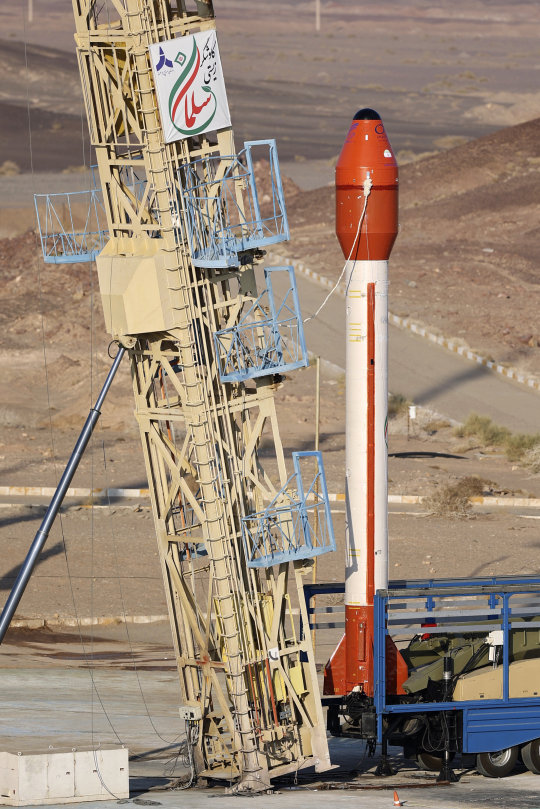

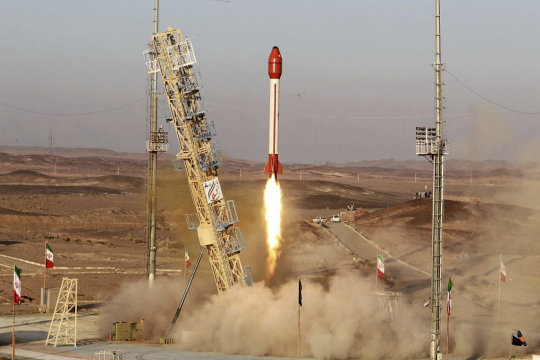
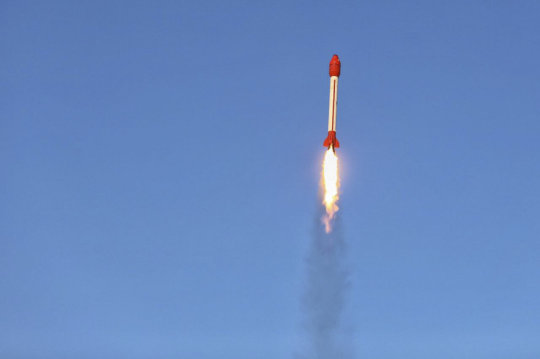
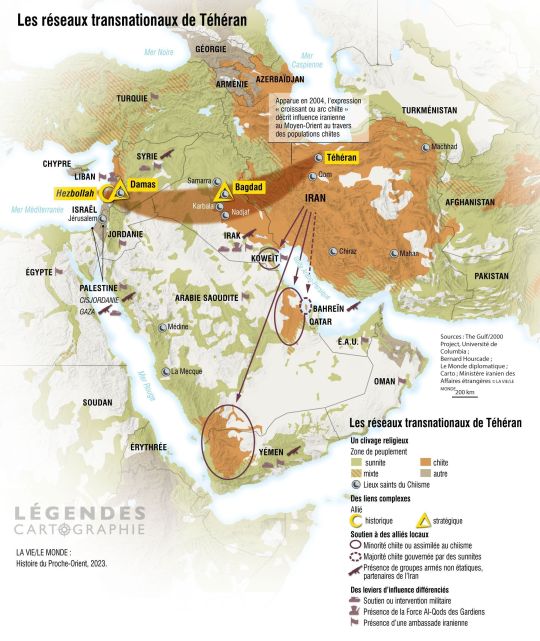
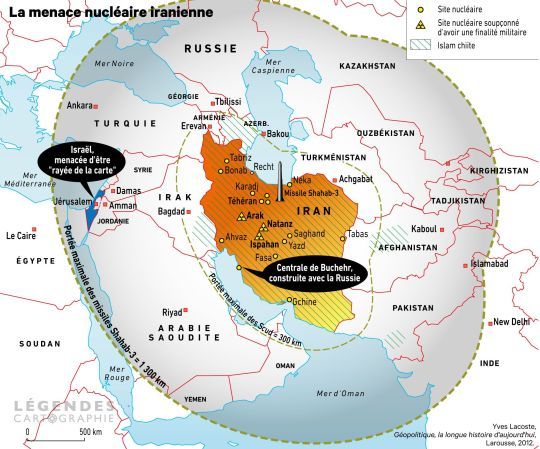
Progress cargo ship docks with space station
A Russian progress cargo ship carrying over two and a half tonnes of fresh supplies has successfully docked with the International Space Station.


The 2024 Australasian sky guide launched
The Powerhouse Museum Sydney Observatory has launched the 34th and latest edition of its popular Australasian sky guide -- providing stargazers and the general public with an easy to follow tour of the majestic southern night skies.
The Science Report
Twins study shows that a healthy vegan diet lowers cholesterol, weight and insulin levels.
Increasing your walking speed could decrease your risk of type 2 diabetes.
Scientists develop an ingestible device the size of a pill that can monitor your vital signs.
Skeptics guide to acupuncture pseudoscience.
SpaceTime covers the latest news in astronomy & space sciences.
The show is available every Monday, Wednesday and Friday through Apple Podcasts (itunes), Stitcher, Google Podcast, Pocketcasts, SoundCloud, Bitez.com, YouTube, your favourite podcast download provider, and from www.spacetimewithstuartgary.com
SpaceTime is also broadcast through the National Science Foundation on Science Zone Radio and on both i-heart Radio and Tune-In Radio.
SpaceTime daily news blog: http://spacetimewithstuartgary.tumblr.com/
SpaceTime facebook: www.facebook.com/spacetimewithstuartgary
SpaceTime Instagram @spacetimewithstuartgary
SpaceTime twitter feed @stuartgary
SpaceTime YouTube: @SpaceTimewithStuartGary
SpaceTime -- A brief history
SpaceTime is Australia’s most popular and respected astronomy and space science news program – averaging over two million downloads every year. We’re also number five in the United States. The show reports on the latest stories and discoveries making news in astronomy, space flight, and science. SpaceTime features weekly interviews with leading Australian scientists about their research. The show began life in 1995 as ‘StarStuff’ on the Australian Broadcasting Corporation’s (ABC) NewsRadio network. Award winning investigative reporter Stuart Gary created the program during more than fifteen years as NewsRadio’s evening anchor and Science Editor. Gary’s always loved science. He studied astronomy at university and was invited to undertake a PHD in astrophysics, but instead focused on his career in journalism and radio broadcasting. He worked as an announcer and music DJ in commercial radio, before becoming a journalist and eventually joining ABC News and Current Affairs. Later, Gary became part of the team that set up ABC NewsRadio and was one of its first presenters. When asked to put his science background to use, Gary developed StarStuff which he wrote, produced and hosted, consistently achieving 9 per cent of the national Australian radio audience based on the ABC’s Nielsen ratings survey figures for the five major Australian metro markets: Sydney, Melbourne, Brisbane, Adelaide, and Perth. The StarStuff podcast was published on line by ABC Science -- achieving over 1.3 million downloads annually. However, after some 20 years, the show finally wrapped up in December 2015 following ABC funding cuts, and a redirection of available finances to increase sports and horse racing coverage. Rather than continue with the ABC, Gary resigned so that he could keep the show going independently. StarStuff was rebranded as “SpaceTime”, with the first episode being broadcast in February 2016. Over the years, SpaceTime has grown, more than doubling its former ABC audience numbers and expanding to include new segments such as the Science Report -- which provides a wrap of general science news, weekly skeptical science features, special reports looking at the latest computer and technology news, and Skywatch – which provides a monthly guide to the night skies. The show is published three times weekly (every Monday, Wednesday and Friday) and available from the United States National Science Foundation on Science Zone Radio, and through both i-heart Radio and Tune-In Radio.
#science#space#astronomy#physics#news#nasa#esa#astrophysics#spacetimewithstuartgary#starstuff#spacetime
9 notes
·
View notes
Text

Title: Slapshot Through the Heart for 1D Tour de Fic Fest
Author: areyoutherelarry
Summary: Being the third overall draft pick comes with a lot of pressure, pressure that Shawn Mendes feels like he’s cracked under until he joins the Florida Panthers and develops a massive crush on their illustrious captain, Niall Horan. However, now that Matthew Tkachuk, the sixth overall pick from Shawn’s draft year, is joining the team, maybe Shawn overexaggerated his and Niall’s connection, maybe he is the biggest draft bust, maybe he isn’t good for the team at all.
Or the Florida Panthers’ crazy 2022-2023 season but make it a friends-to-lovers Shiall Hockey AU with a dash of Matthew Tkachuk propaganda.
@1dtourdeficfest
LONG appendix below cut (Hockey people and glossary)
NHL People


Matthew Tkachuk- (American) Rat king, nepo baby (his dad played for a long time), loves to start shit and plays very good hockey, thriving in Florida, is so obsessed with his new team, always munching on his mouth guard, went #6 in 2016 NHL entry draft, won 0 Stanley Cups (left)
Mitch Marner- (Canadian) tiny baby hockey player, adorable and smiley very good at hockey, went #4 in 2015 NHL entry draft, won 0 Stanley Cups (right)


Dylan Strome- (Canadian) long-suffering, played with Connor McDavid in juniors, considered somewhat of a bust (I love him don’t come for me), went #3 in 2015 NHL entry draft, won 0 Stanley Cups (left)
Auston Matthews- (American) another great hockey player,, known for being fashionable and ✨cool✨, went #1 in 2016 NHL entry draft, won 0 Stanley Cups (right)


Connor McDavid- (Canadian) long-suffering best player currently in the NHL, known for being boring af, went #1 in 2015 NHL entry draft, won 0 Stanley Cups (left)
Nick Foligno- (American-Canadian) I don’t know much about him, another nepo baby, went #28 in 2006 NHL entry draft, won 0 Stanley Cups (right)


Alexander Ovechkin- (Russian) will probably break Gretzky’s record for # of goals scored, is a powerhouse, considered one of the best hockey players of all-time but people consider him a showboat but like yeahhhh duh, went #1 in 2004 NHL entry draft, won 1 Stanley Cup (left)
Phil Kessel- (American) Ridiculous hockey player but was good, think stereotypical Wisconsin dude and yep you’ve got him, known for drinking Coke and eating hot dogs, went #5 in 2006 NHL entry draft, won 3 Stanley Cups (right)


Connor Bedard- (Canadian) Considered a generational talent like Connor McDavid and Sidney Crosby but is only 18, hope he isn’t crushed by the Chicago sports ecosystem (I’m from Chicago), went #1 in 2023 NHL entry draft, won 0 Stanley Cups (duh) (left)
Sidney Crosby- (Canadian) One of the best players, hockey men consider him a whiner but boo to them, he is a big weirdo who has lots of superstitions and doesn’t have public social media, an enigma, went #1 in 2005 NHL entry draft, won 3 Stanley Cups (right)


John Tavares- (Canadian) He’s such a dad, considered to have “abandoned” the Islanders, whatever, went #1 in 2009 NHL entry draft, won 0 Stanley Cups (left)
Ryan Lomberg- (Canadian) Lomberghini I don’t know much about him, chirper, went undrafted, won 0 Stanley Cups (right)


Jonathan Huberdeau- (Canadian) Huby I don’t know much about him, regularly leads teams in points, went #3 in 2011 NHL entry draft, won 0 Stanley Cups (top left)
Claude Giroux- (Canadian) Scrappy hockey player who was captain of the Philadelphia Flyers for a long time, such a dad, went #22 in 2006 NHL entry draft, won 0 Stanley Cups (top right)


Paul Maurice- (Canadian) *I’m missing how to find NHL coaches’ headshots so here’s a funny Paul pic* Says this year’s team has brought back his love of hockey, notably quit previously in the middle of the season because he just couldn’t anymore, also played but only juniors because he got hurt, won 0 Stanley Cups (left)
Sergei Bobrovsky- (Russian) Always seems long-suffering, people talk a lot of shit about Bob, went undrafted, won 0 Stanley Cups (top left)
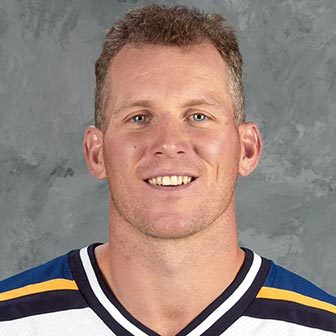

Keith Tkachuk- (American) *This picture is hella old but he looks so much like his kids* Has lots of points because he played lots of games, comes from an NHL family, pretty chirpy even with his own kids, went #19 in 1990 NHL entry draft, won 0 Stanley Cups (left)
Brady Tkachuk- (American) *The head tilt the Tkachuk brothers do* WILL FIGHT, once got bit during a fight, captain of his team has outrageously high number of penalty minutes compared to other captains, nepo baby, the Tkachuk brothers harass and love each other very much, went #4 in 2018 NHL entry draft, won 0 Stanley Cups (right)


Tim Stützle- (German) I don’t know much about him, except he loves doing adorable antics, he and Brady are silly together, hilarious conspiracy that Matthew thinks he’s annoying, went #3 in 2020 NHL entry draft, won 0 Stanley Cups (left)
Thomas Chabot- (Canadian) I don’t know much about him, he hit a teammate in the face with his stick this year accidentally, went #18 in 2015 NHL entry draft, won 0 Stanley Cups (right)


Kris Letang- (Canadian) eternally cursed, this poor man has had two TWO strokes during his career, his dad died not long after he had his second stroke, known for being French Canadian, beautiful, and obsessed with his hair, went #62 in 2005 NHL entry draft, won 3 Stanley Cups (left)
Evgeni Malkin- (Russian) is so moody, will fight you if you irk him just a little bit, also considered whiny with Sid, loves to chirp those he loves, loves jokes and is funny, went #2 in 2004 NHL entry draft, won 3 Stanley Cups (right)


Eric Staal- (Canadian) homophobe, one of four Staal brothers who have played in the NHL, went #2 in 2003 NHL entry draft, won 1 Stanley Cup (left)
Marc Staal- (Canadian) homophobe, one of four Staal brothers who have played in the NHL, went #12 in 2015 NHL entry draft, won 0 Stanley Cups (right)
NHL Glossary (most of this was copy and pasted from around the internet)
The Presidents' Trophy- The Presidents' Trophy is an award presented by the NHL to the team that finishes with the most points during the NHL regular season. Teams get two points for each win, one point for each tie, and no points for a loss
The Presidents' Trophy Curse- Finishing with the best record in the regular season has become a dubious distinction: Only twice in 20 years has the Presidents' Trophy winner gone on to win the Stanley Cup — most recently a decade ago when the Blackhawks beat Boston in the final. Since then, only one team has made it past the second round.
Captain- In ice hockey, the captain is the player designated by a team as the only person authorized to speak with the game officials regarding rule interpretations when the captain is on the ice. At most levels of play each team must designate one captain and a number of alternate captains (usually two or three) who speak to the officials when the captain is on the bench.
BioSteel Camp- The annual BioSteel NHL CAMP is a four-day event where 30 of the top hockey stars and prospects go through both on- and off- ice training as the NHL season start is just around the corner.
London Knights- The London Knights are a junior ice hockey team from London, Ontario, Canada, playing in the Ontario Hockey League, one of the leagues of the Canadian Hockey League.
Memorial Cup- The Memorial Cup is the national championship of the Canadian Hockey League, a consortium of three major junior ice hockey leagues operating in Canada and parts of the United States. It is a four-team round-robin tournament played between the champions of the Ontario Hockey League (OHL), Quebec Major Junior Hockey League (QMJHL) and Western Hockey League (WHL), and a fourth, hosting team, which alternates between the three leagues annually.
Chirp-Hockey insults are known as "chirps.” The basic theory behind any kind of trash-talking is that, by disrupting your opponent's concentration and confidence through chirping, you gain a competitive edge that might just help you win.
The Show- Many players refer to the NHL as “the show”
Training Camp- NHL training camp is the period when professional ice hockey clubs gather to prepare and enhance themselves for the next season. It starts before the start of the regular season.
Development Camp- Development Camp provides an opportunity for prospects to showcase their talents and show management and staff that they are progressing in the right direction. Players at camp are all looking to prove different things. Some camp goers will be looking to prove they're NHL-ready, some will be hoping to show the staff they've improved on areas of need based on last year's camp, some are looking to be signed and some are looking to make a good first impression, along with much more.
Prospect- A prospect is typically a player who was drafted and/or signed by an NHL team, and is assigned to a development farm team. These development leagues are the American Hockey League and the ECHL. Besides these minor leagues, draft picks may continue playing for the team that they were drafted from in the Canadian Hockey League (consisting of the Ontario Hockey League, Quebec Major Junior Hockey League, and Western Hockey League), the NCAA, the United States Hockey League, various European leagues such as the Czech Extraliga, Finnish Liiga, German Deutsche Eishockey Liga, Russian Kontinental Hockey League, Slovak Extraliga, Swedish Hockey League, the Norwegian Fjordkraftligaen or Swiss National League.
Messier Trophy- The Mark Messier Leadership Award is a NHL award that recognizes an individual as a superior leader within their sport and as a contributing member of society.
Selke- The Frank J. Selke Trophy is an annual award given "to the forward who best excels in the defensive aspects of the game." The winner is selected in a poll of the Professional Hockey Writers Association at the end of the regular season.
Waivers- Waivers is an NHL labor management procedure by which an NHL team makes a professional ice hockey player's contract and rights available to all other NHL teams. Other NHL teams "waive" any claim to a player designated for assignment in the American Hockey League (AHL) or designated for release. This means another team could sign that player to their NHL team before they go to the minors.
Celly- Slang for “celebration” and refers to the expression of joy after a player scores a goal; a celly comes in many forms and can range from a fist pump to sheathing a stick as if it were a sword to belly-sliding across the ice. The degree of celly is typically correlated to the importance of the goal.
Liney- The lines in hockey refer to the different lineups that teams utilize throughout the game. Each line typically consists of three forwards, a center and two wingers on either side of the center, and two defensemen. Usually, teams field four lines of forwards and three lines of defensemen. A liney is a player on the same line.
Cross Check- Cross-checking is “The action of using the shaft of the stick between the two hands to forcefully check an opponent.”
Empty Net- Empty net goals usually occur on two occasions in ice hockey: In the final minutes of a game, if a team is within two goals, they will often pull the goalie, leaving the net defenseless, for an extra attacker, in order to have a better chance of scoring to either tie or get within one goal. OR In the case of a delayed penalty, the non-offending team will often pull their goaltender for an extra attacker in this situation as well.
Shift- A hockey shift is when a “line” takes their turn to play while the other lines take a break on the bench to rest. Each line rotates about every 45 seconds to keep the game intensity up and give players time to rest.
Holding- Holding is any action by a player that restrains an opposing player by impeding their progress whether or not they are in possession of the puck, or by such action prohibiting their ability to pass, shoot, receive, or otherwise propel the puck.
The Box- The penalty box or sin bin (sometimes called the bad box, or simply bin or box) is the area in ice hockey where a player sits to serve the time of a given penalty, for an offense not severe enough to merit outright expulsion from the game.
Powerplay- In ice hockey, a team is considered to be on a power play when at least one opposing player is serving a penalty, and the team has a numerical advantage on the ice (whenever both teams have the same number of players on the ice, there is no power play).
Shoot-out Goal- A hockey shootout is a penalty shot competition used to decide the result of a game that is tied after regulation time and is still tied at the end of overtime. In a shootout, a player starts with the puck at center ice and has a scoring opportunity 1-1 against the opposing team's goalie. The puck can only move forwards. If it moves backwards, the play is considered dead.
Gentleman’s Sweep- A gentleman's sweep is where a team wins a playoff series but loses one game leading to a 4–1 win. It is called a gentleman's sweep under the pretense that it would be rude and unsporting to embarrass a team with a 4–0 victory, so the winning team lets the other team win a game to save face.
Important References
2022 FL Panthers Primer
Matthew Tkachuk Daddy Issues
Hockey Fun Facts
Florida’s Schedule
Shiall Timeline
Dylan Strome Primer
2015 Draft Class
Matthew Tkachuk
#1dtourdeficfest#1D Tour de Fic Fest#shiall au#so much hockey#please don't laugh at my horrible photoshop skills lol look at niall on sasha's body#i spent a lot of time on the appendix please read#niall horan#shawn mendes#matthew tkachuk
16 notes
·
View notes
Text
“To protect your freedom, you have to be active": How Within Temptation's new album Bleed Out was inspired by a world in crisis
Within Temptation's new album Bleed Out is their most fired up to date, proving there's much more to them than just being "the symphonic band"
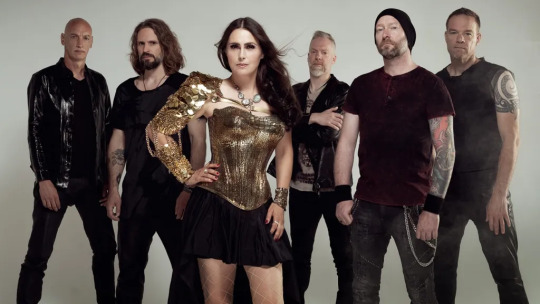
(Image credit: Tim Tronckoe)
In September 2008, Within Temptation visited Kherson, a port city in the south of Ukraine, just north of the Crimean Peninsula. The Dutch metallers were nearing the end of a year-and-half-long tour for their fourth album, The Heart Of Everything, and it was their first time in the Eastern European country.
Two days later, they would play a show in the capital, Kyiv, but it’s Kherson that sticks out most vividly in their minds: a former Eastern bloc city on the rise, the beautiful tree-lined streets, the wide Dnieper River. During their stay, they were treated to a ceremonial tour with the mayor and invited, poignantly in hindsight, to plant a tree for peace.
“They put us in national clothing and gave us traditional food,” vocalist Sharon Den Adel says, remembering the warm welcome. “We had an amazing few days.”
When Russian president Vladimir Putin invaded Ukraine on February 24, 2022, Kherson was the first major Ukrainian city to fall. Russian troops occupied the city from March to November, before it was recaptured by Ukrainian forces. “The resistance there was really strong,” says Robert Westerholt, Sharon’s husband and Within Temptation co-founder/studio guitarist.
“Every night, they would come out and literally slit throats of Russian soldiers, [come] out of corners and attack them in every way they could. They were really paranoid, the Russians, they never felt at ease there.”
That staunch defiance inspired the band to write Cyanide Love, one of several songs on the band’s new album, Bleed Out, about the Ukraine War. ‘Sunflowers will soon be growing over your grave,’ sings Sharon over tense synths and downtuned guitars, a reference to a viral video on the first day of the invasion: a Ukrainian woman offers sunflower seeds to a Russian soldier with the harrowing wish that they bloom in his pocket after his death. ‘You’ll take it, you’ll face it / The barrel of my smoking gun.’
“We really hope to go back [to Kherson] one day,” says Robert, and his voice aches with sadness.
We’re sitting in the stylish but homely kitchen – all high ceilings and tall windows – of Sharon and Robert’s house in a pretty, peaceful countryside town, 40 minutes from the manic tourist bustle of Amsterdam.
The couple have lived here for 15 years, and it’s very much their haven. As we talk, their two sons are next door playing a videogame on the TV. Their friendly black labrador, Charlie, demands a head stroke, and gold balloons strung across the front door celebrate their daughter Eva’s recent high school graduation.
But it’s also Within Temptation HQ, the base where they’ve masterminded the band’s shift from ethereal, dark-edged symphonic royalty to a powerhouse of modern heavy metal (see: 2019’s Resist). We’ve been invited here for a world-exclusive playback of Bleed Out, the band’s eighth album, which, at the time of our visit, hasn’t even been officially announced.
As Robert leads us through the house, we pass a rail in the hall that holds several leather jackets, and an enormous canvas bearing the artwork of The Heart Of Everything. Inside the white-walled studio, art and guitars hang on one wall above a low sofa. Sharon and Robert seem relaxed and excited to talk about the new album, although even now they’re still making last-minute changes.
Up until yesterday, the album had a different title; on the few tracks we were sent in advance, it was The Ultimate Sacrifice. The new name, Sharon says, is stronger, and more representative of the real-life struggles that have inspired some of the songs.
She was in Sweden when she heard about the invasion of Ukraine. Her immediate response, like many others, was one of shock and fear, admitting that the old-fashioned method of warfare – troops and tanks on the ground – was not something she had expected to see in her lifetime.
“Maybe that’s naïve, but not in Europe,” she says, curled up barefoot on a nearby armchair. “Kyiv is only a two-and-a-half-hour flight by plane [from the Netherlands]. It’s the same distance as Spain, where I’m going in a few days.”
Before they press play, they show us the artwork, which depicts a hooded figure in shades of black and red. “It’s dark,” Sharon notes, “because the album is dark.”
While Within Temptation’s last record, Resist, blew their sound up to supercharged proportions, just one listen of Bleed Out is enough to confirm that this is Within Temptation’s biggest, heaviest record so far. Stepping things up a level was necessary to match the severity of the source material.
Opener Go To War sets the tone with a colossal guitar part and an apocalyptic choir, a chorus dripping in grandeur, and a marriage of synths with the unmistakable mechanical judder of tech metal. The latter influence, Robert says, has filtered into the band’s sound not through bingeing on Meshuggah albums, but because its cold, almost cruel, mechanical nature best helped to paint a picture of a universe in crisis. “Somehow this [sound] resonates with that.”
The title track follows in the same vein, anthemic and cinematic, with hints of the epic symphonic and gothic doom of their earlier material. It all sounds huge – built to fill the massive rooms the band have become accustomed to playing these days. “Certain elements have come back in, that made us in the beginning,” says Robert. “They still inspire us.”
When we suggest it’s a culmination of every step in the band’s sonic evolution, Sharon agrees: “But with an extra layer of heaviness.”
“We have been searching for this for quite some time, to have a sound that is heavy, but still has this melancholy and beautiful storytelling lines,” she continues. “And finally, it happened on the very last few songs [we wrote]. Sometimes you have just one song that opens the door.”
It would be easy to draw parallels between Within Temptation’s current approach and a band like Sabaton, who have made a career out of songs that go big on bombast and heroism. Robert is quick to shut the comparison down. “We’re not making war songs. We’re not doing history lessons,” he says, arguing that the band didn’t find inspiration in the grim reality of the battlefield. “It’s more the drive of people and their personal stories. We won’t be going onstage with a tank.”
Within Temptation are reluctant to call this a “political” album, but there’s no doubt it’s their most socially aware yet, far removed from the fantastical tendencies of old. For our listening session we’ve been joined by the band’s manager, Martijn, perhaps a sign that, while Sharon and Robert are keen to discuss the inspirations behind the album, they’re cautious about the sensitivities involved.
Go To War, Cyanide Love, Worth Dying For and Wireless directly reference the invasion. The latter talks about the danger of propaganda. “I remember that I was in Russia once and saw something on my own social media,” says Sharon.
“I asked someone sitting next to me, ‘What are they saying?’ And the guy said, ‘Yes, these Americans, blah, blah… completely the opposite of what I’ve been reading on social media where I’m living. If you don’t go deeper, if you don’t search for more information that tells you the story from different perspectives, then you will believe the state television. So that’s why it’s important to tell stories, to give counterweight.”
The band almost called the track Mark Of Cain, a reference to Cain murdering his brother Abel in the Book Of Genesis. “Russia sees their neighbour country as… something that belongs to them or like family,” continues Sharon. “It’s like you wear the Mark Of Cain, everybody knows you killed your brother.”
Meanwhile, Sharon says the title track was written about Iranian woman Mahsa Amini, who was arrested for allegedly breaking hijab rules and died in the custody of the country’s morality police. Her death sparked nationwide protests.
“It’s inspirational that some people are willing [to protest], knowing when they take off their scarf, what’s going to happen to them,” she says. She viewed the protests as a generational conflict: “There’s a lot of women taking a lot of risk to do that, but also men from their own generation supporting them and also getting into trouble… the older generation are trying to keep things how they are, and the younger generation are ready [for] change.”
We haven’t heard Within Temptation this fired up in ages, but their initial intention wasn’t to make an album. They had spent the last two years releasing singles – Entertain You and The Purge in 2020 and Shed My Skin in 2021, all of which appear on the record – and enjoying the off-cycle immediacy of being able to write, record and upload. Following the outbreak of war, though, writing between their home and the Swedish studio of long-time collaborator Daniel Gibson, the remaining material came together over six months.
Other topics are discussed on the record, too: Ritual is a tongue-in-cheek, double-entendre-heavy paean to female sexual expression. Shed My Skin is about living by your own rules, free from the judgement of others, while Sharon describes Entertain You as “a song for the misfits”. It was inspired, she says, by a video she saw on social media.
“There was a trans woman who was walking in England, and she was bullied by three young guys. She’s not there for their entertainment, but they’re using her for entertainment because she’s different. I wrote that song [to say] we’re beautiful in our own way. To share some love.”
While some of the tracks were written and recorded almost three years apart, what holds the album together is the theme of freedom. “To protect your freedom, you have to be active,” says Robert. “If you’re passive, then you’re going to lose it. It’s about personal freedom, but also freedom for your country, for your friends, family… everything.”
“It’s a record about the unbreakable desire of humans to live free from tyranny and oppression,” agrees Sharon. “How many also are willing to give so much to achieve this not only for themselves, but for others and future generations. As an artist you have this platform, and we can talk about bubblegum. But I can also talk about things that matter.”
Having listened to the album in full, we decamp to a nearby brasserie for lunch, and to continue the conversation. Sharon drives, and as we cruise through the cool shade of the forest next to their home, she motions towards a large sand dune that meets the trees – a bizarre natural phenomenon where the cover art for her 2018 solo album, My Indigo, was shot. She’d like to record more solo work, she later tells us.
“One day, but not at the moment, because I need a little time. It’s been a rollercoaster. I have been writing songs since the war started, before that we had the pandemic, and after that we had to do all the shows that we couldn’t do during Corona.”
Once at the restaurant, we are shown to a table in a private corner outside, tucked away beside the hedges, where Robert and Sharon order us food and drinks. Clearly well-known, several members of staff come over to greet them during the rest of our interview.
Our conversation takes us all over: to Taylor Swift, an artist Sharon respects, and whether they would ever do Eurovision given the rise in metal acts (the answer is no, although Sharon was once on the Dutch judging panel).
We soon get back to the album – whenever an artist wades into the kind of matters discussed on Bleed Out, someone always complains that politics should be kept out of music. Have they received any backlash? “I deleted a message yesterday on Facebook,” says Sharon, explaining that a fan/troll had taken umbrage with the band’s song Raise Your Banner, from 2019’s Resist, which Sharon has taken to dedicating to Ukraine at their live shows, often waving a flag onstage.
“He said, ‘You’re preaching about freedom and then you preach war. You slut.’” She pauses to let the language sink in. He had complained about the lyric, ‘Blood for freedom.’ “It means you would give your life to have freedom,” she argues. “So, if he had put five minutes of effort into reading the lyrics, then he would know Raise Your Banner is taking a stand.”
“What annoys me a lot is that people say, ‘Don’t talk about politics’,” adds Robert. “It’s not even politics. It’s your opinion as an artist. Artists have opinions. That’s what art is for. That’s what makes it interesting.”
In 2021, Sharon was invited by Kerrang! to write a comment piece for International Women’s Day, and chose to argue the importance of access to abortion. Her research for the piece revealed vastly differing approaches across Europe. “There were people who didn’t understand my point of view,” she says of the response to the essay, as lunch arrives at the table. “Not everybody is in the same place at the same time when you write an article like that. But backlash is also a good thing, because then it gets the attention that it needs.”
The track Don’t Pray For Me from the new album makes the argument for bodily autonomy: ‘I don’t need your absolution, so don’t hold that sword over me / For my confessions I don’t need a church / I don’t need salt to know where it hurts.’
“We were fighting for that and talking about it [when I was in my teens], and we’re still fighting the same battles,” she says, explaining that the issues facing women are increasingly at the forefront of her mind, especially given her own daughter’s coming of age. “It doesn’t seem like we have stepped forward yet.”
Within Temptation have always been equally fascinated and horrified by the human predisposition for destruction and harm, whether it be towards our planet or fellow man. As far back as 2004’s The Silent Force, the haunting Forsaken painted a desperate picture of the end of days. ‘Our time has run out, our future has died / There’s no more escape… We’re the last of our kind.’
They also grappled with the futility of war in 2007, on Our Solemn Hour, from The Heart Of Everything, which interspersed symphonic excess with excerpts from Winston Churchill’s Be Ye Men Of Valour speech.
In 2020, they had started planning a stage production worthy of their grandiose vision, although the pandemic put their plans on ice. Instead, their blueprints became The Aftermath, a CGI livestream in 2021 which took place in a post-apocalyptic world. It depicted the band performing in the remnants of a ruined landscape, escaping to space as the planet burns in a fireball below – a sobering statement on the man-made challenges facing us today.
“It was a thought experiment of what would be very possible in the future,” says Robert of his sci-fi vision. “There were two thoughts behind it. One, we are getting more aware that we’re really destroying our planet and ourselves. That’s pretty obvious right now. But the second thing is the big perspective – it’s quite logical that people, at a certain point, will definitely [abandon Earth and] go into space.”
Another subject the band are interested in is the increasing, perhaps dangerous, control modern technology has on our lives. They’re huge fans of Charlie Brooker’s Netflix series Black Mirror, while a similar narrative rippled through 2019’s Resist. Their live shows have become increasingly futuristic in theme, while the video for recent single Wireless was made using AI. We mention that Black Mirror actor Aaron Paul voiced concerns about AI, and that soon we might not be able to tell what’s real and what’s not. “I think that’s already the case,” says Sharon.
We ask about the rise in AI-created music online, and if they worry about the artistic implications. Robert is dismissive. “Music is not just about listening to something, it’s the whole story around it, where you are at a certain place,” he says. “We’re very interested in what it can do. It’s one big experiment.”
How would you feel if someone used AI to make a Within Temptation song, and people thought it was an official track? “What I could find difficult is they could make lyrics, that are offensive, that I didn’t write, and people might think I did,” says Sharon.
Robert shrugs. “But then you can tell them you didn’t.”
“But if they can’t tell the difference…” Sharon perseveres.
Robert is still unconcerned. “If it’s not on your official website… it’s really no issue at all.”
Sharon looks at us with a wry smile. “So even we have our discussions about that.”
When Within Temptation were able to resume touring after the pandemic, they brought The Aftermath to life. Rescheduling their long-postponed Worlds Collide UK arena tour with Evanescence, suddenly they were operating, conceptually and visually, on a whole new level.
Their pyro-packed stage production even included a huge humanoid head. They cite Iron Maiden, who they have toured with several times over the years – the most recent outing being on 2022’s Legacy Of The Beast run – as their main inspiration. “Those bands who do something special visually have always inspired us to do the same,” says Sharon.
And while they’ve been a bona fide arena band in mainland Europe for years, it felt like, finally, they’d cemented the same status in the UK. “I think everywhere the venues will now be a bit bigger,” smiles Robert. “We felt it was a milestone in our career. We didn’t care too much about what we were making [financially] with the show, but just to make it the most memorable show that we could. We never thought that we would reach this far.”
Sonically, too, it feels like Within Temptation could go anywhere. While Bleed Out is littered with symphonic elements, it’s a musical label that now feels uncomfortable, something they’ve long outgrown. “We don’t feel like a symphonic band,” says Robert.
Sharon agrees. “But I don’t know what to call ourselves now either. I don’t have a new box to put ourselves in.”
And even as they’re making the final changes to Bleed Out, their minds are fixed on the future. As hectic as the last year has been, the process of making the new album has got their creative juices flowing.
“It’s so funny. As soon as we finished [Bleed Out] we were like, ‘We want to make another album.’ But we’re going to take our time for the next one,” she insists. “We were working full force from our house [during the pandemic]. I loved what I was doing, but at the same time I was also very tired. So I can’t wait to have a little bit of a break. This summer, we have a few festivals and then I have some time to really get both feet on the ground.”
She won’t take her foot off the gas for too long, though. After 27 years of constant innovation, Within Temptation don’t know how to stand still. “What I feel like now is actually writing again,” she laughs, shaking her head. “It’s very strange and positive!”
15 notes
·
View notes
Text
Blast Belly Fat & Sculpt Your Core! Weight loss exercise for belly fat #BellyFatFighter #WeightLossExercises #WorkoutAtHome
Belly fat can be stubborn, but don't despair! These targeted exercises will help you torch calories and sculpt your dream core:
1. High-Intensity Interval Training (HIIT): Short bursts of intense exercise followed by rest periods get your heart pumping and burn serious fat. ⏱️ #HIITWorkout
2. Cardio: Get your heart rate up with activities like running, swimming, or jumping rope to burn overall body fat, including belly fat. ♀️ #CardioQueen
3. Russian Twists: Engage your obliques and core with this twisting motion, targeting those hard-to-reach side muscles. #CoreStrength
4. Mountain Climbers: Get your heart rate up while working your abs and legs with this dynamic exercise. ♀️ #FullBodyBurn
5. Plank Variations: The classic plank is a core powerhouse! Try different variations like side planks or knee planks to challenge your core from all angles. #PlankPower #StrongAbs #FitnessMotivation #weightloss #healthyweightloss #bellyfatexercise #healthylifestyle
Bonus Tip: Combine these exercises with a healthy diet for optimal belly fat reduction. Remember, consistency is key! ✨
#fitness#healthy weight loss#weight loss tips#weight loss#summer weight loss#weight loss diet#weight loss motivation#health and wellness#healthy lifestyle#loose belly fat#fat belly#sexy belly#bellyfat exercise#home workout
2 notes
·
View notes
Text
https://www.washingtonpost.com/technology/2023/09/07/ukraine-starlink-musk-biography/
SpaceX cut off Starlink satellite internet service to Ukrainian submarine drones last year just as they were launching an attack on the Russian Black Sea Fleet, according to a new biography of SpaceX founder Elon Musk.
The new details of the previously reported incident underscore how dependent multiple governments have become on a man who controls both a dominant means of high-speed communication and a major platform for public discourse, X.
Musk bought X, then known as Twitter, last year, after building SpaceX into a Washington powerhouse.
The armed submarine drones were poised to attack the Russian fleet, according to a CNN report that cited an excerpt of a forthcoming biography of Musk by Walter Isaacson, the former chief executive of CNN. Instead, according to the book, which goes on sale Tuesday, the drones “lost connectivity and washed ashore harmlessly.”
Ukrainian and American officials scrambled to get service restored, according to the report, appealing to Musk directly. Musk eventually agreed. But the recounting of the incident is a reminder of how the SpaceX founder has amassed enormous influence by maintaining a dizzying pace of innovation that has left competitors in the dust — and left governments carefully navigating the relationship.
Someone needs to hunt this man for sport.
At X, Musk’s power and mercurial decisions have caused consternation for some officials and civil society experts as propaganda spreads ahead of a wave of elections across the world next year.
Cutting Ukraine’s mission off in midstream “is a great example of the power of communications platforms being concentrated in the hands of a few private companies,” said Bret Schafer, an analyst at the Alliance for Securing Democracy.
Seriously.
SpaceX’s Dragon capsule is the only way NASA can send its astronauts to and from the International Space Station. It launches sensitive national security satellites for the Pentagon and the National Reconnaissance Office. It launches more rockets than any other company or country — this year it has already surpassed its record last year of 61 — and operates more satellites than any other entity on Earth, with more than 4,500 in orbit.
SpaceX started providing Starlink internet service to Ukraine after Russia’s invasion, creating a lifeline for the country when its communications systems had largely been knocked out. But according to Isaacson’s book, Musk grew concerned about Ukraine’s military using them for offensive purposes, according to the CNN report.
The amount of hatred I feel towards this man is phenomenal.
#some needs to hunt him for sport#make him feel the fear and realize his complete lack of power and control#elon musk#politics#ukraine
6 notes
·
View notes
Text
There's two places that I will never believe what we were told in any regard about. The moon, and antarctica. And no form am I going to claim right now I know what is going on. I have no clue. I have a ton of theories, but because all of the evidence from both sources are government controlled and owned, finding the truth means you basically got to pay to explore them yourselves. I'm just saying living this long and reading about them this long, there are far too many inconsistencies to say even half of what they told us is true. There's too many stories that conflict with another. Either first hand accounts or hard data. It's kind of like the story on us nuking not once but twice japan. They say it was retaliation, but if you look into it, it was basically to scare off the russians in the future. It was a show of force. We weren't scared of japan. We were scared of russia. People forget without Russia we would have lost world war ii. So Russia was a powerhouse. And I think the whole moon race was a show. And if we got there, I don't think we got there initially. We just had to make it look like we did so again the Russians looked inferior. It's more about show than anything else. And Antarctica my only argument is the world was in the middle of multiple Wars around the world, yet everybody at the same time came together to agree that nobody could go there without permission of everybody else? That fucking weird. Nowhere else planet had this been agreed to. But antarctica? Now this is the one where I think we do have more proof. I believe that there is ancient artifacts up there that can disprove a lot of human history. But that's a specific as I'm going to get. I'm tired of trying to make claims without any hard data. There's proof to support what I'm claiming, but it's so vague and old, you could interpret it a couple different ways. Still. Kind of like the ocean. They actually say we know more about the universe than the ocean. We haven't even been to 80% of the ocean because of pressure. But I have recently saw video that freaked me the fuck out. And it was real. You know those giant squids? The size of like half of a football field? They're real. There's even proof that they've taken down ships. They just don't come up to the top surface very often because they're used to being lower. We don't know anything and we don't know that we don't know anything because we think we know something. We don't. We fucking don't. Cuz the one thing I've learned about the rich and Powerful is the truth makes their grip on us weaker. No matter what the truth is. As long as it's true. That's why they lie constantly. That's why they suppress information. That's why they burn down libraries of alexandria. They don't want you to know the truth. And if anything, that should be the only reason for searching for the truth. Because they gain from you not knowing. And you lose from not knowing. Every single time...
3 notes
·
View notes
Text
ESSEN, Germany (AP) — For most of this century, Germany racked up one economic success after another, dominating global markets for high-end products like luxury cars and industrial machinery, selling so much to the rest of the world that half the economy ran on exports.
Jobs were plentiful, the government's financial coffers grew as other European countries drowned in debt, and books were written about what other countries could learn from Germany.
No longer. Now, Germany is the world’s worst-performing major developed economy, with both the International Monetary Fund and European Union expecting it to shrink this year.
It follows Russia's invasion of Ukraine and the loss of Moscow's cheap natural gas — an unprecedented shock to Germany’s energy-intensive industries, long the manufacturing powerhouse of Europe.
The sudden underperformance by Europe's largest economy has set off a wave of criticism, handwringing and debate about the way forward.
Germany risks “deindustrialization” as high energy costs and government inaction on other chronic problems threaten to send new factories and high-paying jobs elsewhere, said Christian Kullmann, CEO of major German chemical company Evonik Industries AG.
From his 21st-floor office in the west German town of Essen, Kullmann points out the symbols of earlier success across the historic Ruhr Valley industrial region: smokestacks from metal plants, giant heaps of waste from now-shuttered coal mines, a massive BP oil refinery and Evonik's sprawling chemical production facility.
These days, the former mining region, where coal dust once blackened hanging laundry, is a symbol of the energy transition, dotted with wind turbines and green space.
The loss of cheap Russian natural gas needed to power factories “painfully damaged the business model of the German economy,” Kullmann told The Associated Press. “We’re in a situation where we’re being strongly affected — damaged — by external factors.”
After Russia cut off most of its gas to the European Union, spurring an energy crisis in the 27-nation bloc that had sourced 40% of the fuel from Moscow, the German government asked Evonik to keep its 1960s coal-fired power plant running a few months longer.
The company is shifting away from the plant — whose 40-story smokestack fuels production of plastics and other goods — to two gas-fired generators that can later run on hydrogen amid plans to become carbon neutral by 2030.
One hotly debated solution: a government-funded cap on industrial electricity prices to get the economy through the renewable energy transition.
The proposal from Vice Chancellor Robert Habeck of the Greens Party has faced resistance from Chancellor Olaf Scholz, a Social Democrat, and pro-business coalition partner the Free Democrats. Environmentalists say it would only prolong reliance on fossil fuels.
Kullmann is for it: “It was mistaken political decisions that primarily developed and influenced these high energy costs. And it can’t now be that German industry, German workers should be stuck with the bill.”
The price of gas is roughly double what it was in 2021, hurting companies that need it to keep glass or metal red-hot and molten 24 hours a day to make glass, paper and metal coatings used in buildings and cars.
A second blow came as key trade partner China experiences a slowdown after several decades of strong economic growth.
These outside shocks have exposed cracks in Germany's foundation that were ignored during years of success, including lagging use of digital technology in government and business and a lengthy process to get badly needed renewable energy projects approved.
Other dawning realizations: The money that the government readily had on hand came in part because of delays in investing in roads, the rail network and high-speed internet in rural areas. A 2011 decision to shut down Germany's remaining nuclear power plants has been questioned amid worries about electricity prices and shortages. Companies face a severe shortage of skilled labor, with job openings hitting a record of just under 2 million.
And relying on Russia to reliably supply gas through the Nord Stream pipelines under the Baltic Sea — built under former Chancellor Angela Merkel and since shut off and damaged amid the war — was belatedly conceded by the government to have been a mistake.
Now, clean energy projects are slowed by extensive bureaucracy and not-in-my-backyard resistance. Spacing limits from homes keep annual construction of wind turbines in single digits in the southern Bavarian region.
A 10 billion-euro ($10.68 billion) electrical line bringing wind power from the breezier north to industry in the south has faced costly delays from political resistance to unsightly above-ground towers. Burying the line means completion in 2028 instead of 2022.
Massive clean energy subsidies that the Biden administration is offering to companies investing in the U.S. have evoked envy and alarm that Germany is being left behind.
“We’re seeing a worldwide competition by national governments for the most attractive future technologies — attractive meaning the most profitable, the ones that strengthen growth,” Kullmann said.
He cited Evonik’s decision to build a $220 million production facility for lipids — key ingredients in COVID-19 vaccines — in Lafayette, Indiana. Rapid approvals and up to $150 million in U.S. subsidies made a difference after German officials evinced little interest, he said.
“I'd like to see a little more of that pragmatism ... in Brussels and Berlin,” Kullmann said.
In the meantime, energy-intensive companies are looking to cope with the price shock.
Drewsen Spezialpapiere, which makes passport and stamp paper as well as paper straws that don't de-fizz soft drinks, bought three wind turbines near its mill in northern Germany to cover about a quarter of its external electricity demand as it moves away from natural gas.
Specialty glass company Schott AG, which makes products ranging from stovetops to vaccine bottles to the 39-meter (128-foot) mirror for the Extremely Large Telescope astronomical observatory in Chile, has experimented with substituting emissions-free hydrogen for gas at the plant where it produces glass in tanks as hot as 1,700 degrees Celsius.
It worked — but only on a small scale, with hydrogen supplied by truck. Mass quantities of hydrogen produced with renewable electricity and delivered by pipeline would be needed and don't exist yet.
Scholz has called for the energy transition to take on the “Germany tempo,” the same urgency used to set up four floating natural gas terminals in months to replace lost Russian gas. The liquefied natural gas that comes to the terminals by ship from the U.S., Qatar and elsewhere is much more expensive than Russian pipeline supplies, but the effort showed what Germany can do when it has to.
However, squabbling among the coalition government over the energy price cap and a law barring new gas furnaces has exasperated business leaders.
Evonik's Kullmann dismissed a recent package of government proposals, including tax breaks for investment and a law aimed at reducing bureaucracy, as “a Band-Aid.”
Germany grew complacent during a “golden decade” of economic growth in 2010-2020 based on reforms under Chancellor Gerhard Schroeder in 2003-2005 that lowered labor costs and increased competitiveness, says Holger Schmieding, chief economist at Berenberg bank.
“The perception of Germany's underlying strength may also have contributed to the misguided decisions to exit nuclear energy, ban fracking for natural gas and bet on ample natural gas supplies from Russia,” he said. “Germany is paying the price for its energy policies.”
Schmieding, who once dubbed Germany “the sick man of Europe” in an influential 1998 analysis, thinks that label would be overdone today, considering its low unemployment and strong government finances. That gives Germany room to act — but also lowers the pressure to make changes.
The most important immediate step, Schmieding said, would be to end uncertainty over energy prices, through a price cap to help not just large companies, but smaller ones as well.
Whatever policies are chosen, “it would already be a great help if the government could agree on them fast so that companies know what they are up to and can plan accordingly instead of delaying investment decisions," he said.
7 notes
·
View notes
Note
I got like six languages- Swahili, Scottish and Irish Gaelic, Russian, French and Arabic but only know swears in 4 along with English so 5
It’s shameful
-🐁
you're a powerhouse what the HELL
6 notes
·
View notes
Text
Friday, November 3, 2023
Voters are skeptical of Biden’s age. But Trump’s flubs draw attention, too
(AP) To hear Donald Trump tell it, President Joe Biden is so senile that he doesn’t know where he’s speaking and feeble enough that others are making decisions for him. Yet Trump has made notable flubs of his own. The former president mixed up the city and state where he was campaigning last weekend and had to be corrected by a local official. He recently called Hungarian Prime Minister Viktor Orbán the leader of Turkey and has repeatedly mispronounced the militant group Hamas as “hummus.” Biden is now 80 and Trump is 77. Trump was the oldest person elected to a first term—until Biden was. Today, the age factor is shaping up as an important issue in a possible rematch in 2024 of their first race, in 2020.
Hurricane Otis produced 205 mph gust, among strongest ever measured
(Washington Post) A weather station near Acapulco measured a 205 mph wind gust, one of the highest ever observed in the world, as Category 5 Otis made landfall last Wednesday as the strongest hurricane on record to strike the west coast of Mexico. The storm killed more than 40 people and produced catastrophic damage in and around Acapulco, with economic losses expected to top $10 billion.
A Record Oil Gusher Infuses Tiny Guyana With Wealth and Worries
(WSJ) Guyana is suddenly the world’s next great energy powerhouse. Through a series of discoveries starting in 2015, Exxon Mobil and its partners have found more than 11 billion barrels of oil off the Guyanese coast, spurring massive investments and transforming one of South America’s poorest countries into the world’s fastest-growing economy, according to the International Monetary Fund. The jarring new reality has caused alarm for some locals, and some fear their country is becoming a subsidiary of Exxon.
Bolivia cuts ties with Israel
(Washington Post) Bolivia’s government said it is severing diplomatic ties with Israel in response to its ongoing attacks on Gaza, condemning the “aggressive and disproportionate Israeli military offensive.” Chile and Colombia announced that they would recall their ambassadors. Israel’s Foreign Ministry called Bolivia’s decision to cut ties “a surrender to terrorism.”
Brazil to militarize key airports, ports and borders in a crackdown on organized crime
(AP) Brazil’s President Luiz Inácio Lula da Silva said Wednesday he is sending the armed forces to boost security at some of the country’s most important airports, ports and international borders as part of a renewed effort to tackle organized crime in Latin America’s largest nation. The decision comes days after members of a criminal gang set fire to dozens of buses in Rio de Janeiro, apparently in retaliation for the police slaying their leader’s nephew. Brazil will mobilize 3,600 members of the army, navy and air force to increase patrols and monitor the international airports in Rio and Sao Paulo, as well as two maritime ports in Rio and Sao Paulo’s Santos port, the busiest in Latin America—and a major export hub for cocaine.
A world of fear for Europe’s Jews
(NYT) Perhaps not since the Holocaust, which saw the annihilation of about two-thirds of Europe’s Jewish community, have the Jews of Europe lived in an atmosphere of fear so acute that it feels like a fundamental shift in the terms of their existence. Across a Europe of daubed Stars of David on apartment buildings, bomb threats to Jewish stores and demonstrations calling for Israel’s eradication, Jews speak of alarm as pro-Palestinian sentiment surges. “There is a feeling of helplessness that has never been experienced before,” said Joel Rubinfeld of the Belgian League Against Anti-Semitism.
Ukraine ‘fatigue’ prevalent in Europe, Meloni tells Russian prank callers
(Politico) In a call with people she thought were officials from the African Union, Italian Prime Minister Giorgia Meloni leaked that many people in Europe were experiencing “fatigue” with the ongoing war in Ukraine. Unfortunately for Italy’s leader, she was actually talking to a pair of Russian pranksters named Vovan and Lexus, who released the call audio online. “I see that there is a lot of fatigue, I have to say the truth, from all the sides,” she said. “We [are] near the moment in which everybody understands that we need a way out.” The call comes as both Europe and the U.S. have noted a decline in popular support for the war in Ukraine. “Exhaustion with the war rolls along like a wave,” said Ukrainian President Volodymyr Zelensky in a recent interview. “You see it in the United States, in Europe. And we see that as soon as they start to get a little tired, it becomes like a show to them: ‘I can’t watch this rerun for the 10th time.’”
Putin is expected to seek reelection in Russia, but who would run if he doesn’t?
(AP) Vladimir Putin isn’t quite the man he used to be—more than a decade has passed since the Russian president engaged in public stunts to boast of his vigor by hugging a polar bear or riding a horse barechested in the mountains. The war in Ukraine has further dented that strongman image. Putin is still expected to seek another term when Russia holds presidential elections next March. In fact, he has pushed through changes in the constitution to allow him to run for two more six-year terms. But 71 is an age when death or serious illness are hardly distant concerns for the man who has ruled Russia for 24 years. If Putin was not on the ballot for some reason, it’s not clear who might take his place.
Myanmar rebels seize vital border town as China calls for ceasefire
(Al Jazeera) Myanmar’s military government says it has lost control of an important town on the border with China after days of fierce fighting with armed groups. The loss is a major blow to the generals who seized power from Myanmar’s elected government in February 2021 and have since struggled to contain opposition to their rule. The town, bordering China’s Yunnan province, is central to the flow of trade from Myanmar to China. More than a quarter of Myanmar’s $1.8bn border trade with China passed through Chinshwehaw from April to September, state media reported in September. China is a key ally and major weapons supplier to Myanmar’s military government, whose power grab nearly three years ago it has not called a coup.
The Hermit Kingdom Becomes More Hermit-y
(NBC News) According to media reports from across the globe, North Korea is preparing to close up to a dozen of its embassies worldwide. North Korean state media said that state diplomats conducted “farewell” visits to Angola and Uganda last week, and the country also appears set to close its diplomatic missions to Spain and Hong Kong. “They appear to be withdrawing as their foreign currency earning business has stumbled due to the international community’s strengthening of sanctions, making it difficult to maintain the embassies any longer,” said South Korea’s inter-Korean affairs ministry. “This can be a sign of North Korea’s difficult economic situation, where it is difficult to maintain even minimal diplomatic relations with traditionally friendly countries.” Of course, South Korea might not be the best source for unbiased news on its neighbor to the north.
Amnesty International says Israel using white phosphorus in Lebanon
(AP) Amnesty International says that the IDF has hit civilians in southern Lebanon with white phosphorus shells multiple times over the past month. White phosphorus is a controversial incendiary munition that’s useful for illuminating military targets at night and setting up smokescreens. It’s also a deadly weapon that can cause widespread destruction when aimed at civilian populations, setting buildings ablaze and burning human flesh to the bone. Russia has come under heavy criticism for using the weapon against civilian populations in Ukraine—a move that’s considered a war crime. Video evidence reviewed by Amnesty International, Human Rights Watch, and the Washington Post also shows the IDF using white phosphorus in Gaza City.
Rafah Gate Opened
(NBC News) Hundreds of foreign passport holders and groups of severely injured Palestinians were allowed to cross into Egypt yesterday, the first civilians to leave the Gaza Strip during the three-week conflict. Egypt had thus far declined to allow refugees across the border, citing the potential for an unmanageable number of refugees, concerns refugees won’t be allowed to return to their homes following the war, and mistrust of Hamas and other Islamic militant groups. US officials suggest as many as 600 American citizens remain in Gaza, some of whom were among those allowed to exit with the initial group. Separately, Israel has effectively begun a ground invasion of the 140-square-mile territory, with at least four reported incursions. Analysts say troop movements appear designed to isolate Gaza City from the south.
Israel makes a desolation and may call it peace
(Washington Post) The Roman historian Tacitus famously conjured a line that still resonates from antiquity. “They make a desert, and call it peace,” concluded a bitter Caledonian enemy of the Romans, speaking of the injustices wrought by the powerful empire as its legions rampaged across the land. Israeli politicians, including Prime Minister Benjamin Netanyahu, cast their ongoing campaign in the Gaza Strip as a war of justice and retribution against the savagery of Islamist group Hamas, which is responsible for the single deadliest assault on Israel since the Jewish state’s founding. In their zeal to punish Hamas, Israel has already triggered a deep humanitarian crisis for the besieged enclave of 2.3 million people and killed more than 8,500 people, including over 3,500 children, and destroyed thousands of buildings in the crammed territory amid relentless aerial bombardments. A statement from UNICEF, the U.N. children’s agency, called Gaza “a graveyard for thousands of children.” “It’s a living hell for everyone else,” the statement said.
War and the young
(NPR) The other night, we accepted an invitation to visit the Israeli military spokesman’s office. My colleagues and I observed how young almost everyone seemed. Israelis commonly perform compulsory military service after high school. With the exception of a few senior officers, hardly anyone seemed to be out of their twenties. We’d come to see the latest version of an Israeli government video showing the Hamas attack on Oct. 7. On screen, many people were young. One scene, taken from security cameras in a home, shows two boys in their underwear, having been surprised in bed by the early-morning attack. Their father tries to herd them into a shelter but is apparently killed in front of them. Another scene shows Palestinian attackers, mostly very young men. As Israel responds to the Hamas-led attack, much of the suffering has fallen on the young. As of today, Gaza’s Health Ministry said more than 8,500 people had been killed. The U.N. says nearly 70% of them are women and children. Many civilians tell stories of searching for water for their children; Israel cut off the supply at the start of the war. War is nearly always conducted by the young, though older people tend to send them. It often is inflicted on the young, who are not consulted beforehand. There’s a special irony of this conflict in that it turns on arguments over land that stretch back generations—even centuries—long before any of today’s participants were born.
‘AI’ named Word of the Year by Collins Dictionary
The abbreviation of artificial intelligence (AI) has been named the Collins Word of the Year for 2023. Lexicographers at Collins Dictionary said use of the term had “accelerated” and that it had become the dominant conversation of 2023. The Collins announcement comes as UK Prime Minister Rishi Sunak hosts a summit for 100 world leaders, tech bosses and AI researchers to discuss how best to maximise the benefits of this technology while minimising the risks. Elsewhere, the Beatles have used it to help retrieve John Lennon’s vocals to create their “last song”, which will be released tomorrow.
2 notes
·
View notes
Text
When Russian President Vladimir Putin last met North Korea’s leader in 2019, he was putting forward the image of an international statesman, positioning himself as a potential go-between for broken nuclear talks with the United States. Putin was ready to brief China and the Trump administration on his talks with North Korean leader Kim Jong Un, a nod to the fraught but still functional ties between Washington and Moscow, as well as Russia’s role as a diplomatic powerhouse and potential mediator over ending North Korea’s nuclear program.
Flash forward four years, and Putin has lost all those cards.
Russia’s economy is wheezing, Moscow is isolated on the world stage, and Putin is unable to travel to major summits abroad because there is an arrest warrant outstanding for him from the International Criminal Court, and it is all due to Russia’s invasion of Ukraine. In 2019, Kim was reeling from failed summits with former U.S. President Donald Trump and looking for a diplomatic lifeline. Now, it is Putin looking to Kim for lifelines, on both the diplomatic and military fronts, as he seeks to stave off a disastrous defeat in Ukraine and drastically reshape Russia’s foreign policy.
Putin and Kim are reportedly expected to meet in the Russian city of Vladivostok later this week for the second time ever, in a highly anticipated meeting between two of the West’s most dangerous rivals.
Whether Kim and Putin meet in person—the summit hasn’t been officially confirmed—the two countries need each other now more than ever. North Korea is emerging from a punishing era of self-imposed isolation from the coronavirus pandemic and seeks new technologies to expand its nuclear and missile programs. Russia, meanwhile, seeks to cobble together any international support and military supply lines it can.
“The needs on the Russian side are dire,” said Michael Kimmage, a scholar at the Catholic University of America and former State Department official. “Russia needs new markets for its energy, it needs arms, and it needs ways to get around Western sanctions and is turning to what is considered the most closed-off dictatorship in the world for help now.”
North Korea, often dubbed the “hermit kingdom,” has stubbornly pursued a nuclear weapons program despite years of punishing U.N. sanctions and deep international isolation. Russia for years backed international sanctions on North Korea over its nuclear program: It was one of the only subjects that Moscow and Washington broadly saw eye to eye on.
But that cooperation abruptly stopped after Russia launched its full-scale invasion of Ukraine last year, and there is a mounting fear in Western capitals that Russia could now aid North Korea’s expanding nuclear program indirectly by supplying Pyongyang with new missile technologies and countermeasures to Western missile defense systems.
U.S. outreach to Pyongyang to restart talks on ending its nuclear program have been met with radio silence, as it steadily increases its technical capabilities and arsenal of ballistic and cruise missiles.
While Russia has always been uneasy with the prospect of a nuclear North Korea, its setbacks in Ukraine have forced the country to rethink its priorities, experts said. Russia is seeking to completely reorient its foreign policy away from the West, a significant shift from Putin’s initial foreign-policy outlook when he took power over two decades ago. Expanding ties with China, countries in the so-called global south, and even isolated Western rivals such as North Korea fits into this broad strategy.
“Putin has been trying to develop a post-Western Russian foreign policy. This is a very serious enterprise for Moscow and one that North Korea could be a part of in new ways,” Kimmage said.
Now, Putin needs access to North Korea’s military stocks as Russia’s invasion of Ukraine—which the Kremlin expected to take no more than a few weeks—grinds through its second year. Pyongyang has vast reserves of ammunition, much of which is based on Soviet-era models that are compatible with Russian weapons systems. North Korea also has the ability to produce more weaponry.
The White House warned last November that Pyongyang was covertly supplying Russia with artillery shells that were being shipped to Ukraine via the Middle East and Africa. “Those discussions are actively advancing,” U.S. National Security Advisor Jake Sullivan told reporters in a press briefing on Sept. 5. Sullivan said that support has been very limited so far, but that could change in time as Western sanctions continue to squeeze Russia’s defense industrial base.
“Over time, we have not seen them actively supply large amounts of munitions or other military capacity to Russia for the war in Ukraine, [but] I cannot predict to you what will happen at the end of this.”
The scramble for North Korean weapons, which have a high failure rate, underscores Moscow’s desperation to stave off defeat in Ukraine.
“North Korean munitions have a quality problem, and you wonder if the Russians know what they’re buying,” said John Everard, the former U.K. ambassador to North Korea.
North Korean arms have been fired by both parties to the conflict, with some ending up in Ukrainian hands after being recovered from Russian-occupied territory. But the Ukrainian military, which is also grappling with ammunition shortages, told the Financial Times that Pyongyang’s weapons, some of which were manufactured in the 1980s and 1990s, were highly unreliable.
Everard, who also served as coordinator of the United Nations Security Council panel of experts on sanctions on North Korea, noted that an arms deal between the two countries does not require a meeting at the head-of-state level; Russian Defense Minister Sergei Shoigu visited Pyongyang in July. The summit is likely to be as much about signaling as it is about substance. Putin has long sought to be taken seriously on the international stage as the leader of a great power. Frozen out of Western-led institutions over his country’s invasion of Ukraine, the Russian leader has sought alternate formats such as the Russian-led Eurasian Economic Union and the BRICS grouping to assert his country’s influence. A meeting with the much-pilloried leader of the world’s most isolated country may not be the stuff of historic summitry, but it serves to keep Putin in the news.
“The main priority is he just wants to be looked at, quite frankly,” said William Pomeranz, director of the Wilson Center’s Kennan Institute, which focuses on Russia and Eurasia.
North Korea, for its part, is looking for its own help from Russia on a variety of diplomatic and military priorities. There are broadly three tranches of aid North Korea could get from Russia in return for agreeing to supply military support to Moscow, according to U.S. and South Korean officials who spoke on condition of anonymity as well as experts tracking the meeting.
The first is food, health, and economic aid, something North Korea is in desperate need of after a yearslong self-imposed quarantine during the coronavirus pandemic that deepened the country’s chronic economic and food insecurity crisis.
Second, North Korea has historically played its two main benefactors, Russia and China, off one another, and a meeting with Putin may be an opportunity for Kim to do so again. While China still props up North Korea, viewing it as a key buffer state against Western-aligned powers in Asia, Chinese President Xi Jinping’s relationship with Kim has soured, experts said.
“China is quite ambivalent about North Korea, but it’s the only North Korea they got, so they’re stuck with it,” said Victor Cha, an expert on Korea at the Center for Strategic and International Studies. North Korea deepening ties with Russia could prompt China to expand its own engagement and economic ties with Pyongyang again, lest it lose out in influence to Moscow.
The third, and most worrying prospect for Western officials, is what military assistance Russia could provide North Korea in return for guns and ammunition to aid its war in Ukraine. North Korea could also seek satellite and nuclear submarine technology from Russia, though the extent to which Moscow would transfer such technology remains unclear. Western officials and analysts also fear that Russia could aid North Korea with its missile programs either by transferring technology on solid fuel propellants for its intercontinental ballistic missiles or technology on countermeasures to defend missiles from any Western interceptors.
“These are two things that make a delivery system for a nuclear warhead much more survivable and not easily stopped by U.S. missile defense systems,” Cha said. “That’s a real concern for the U.S., and something where the Russians can be very helpful to them if they so choose.”
Top Biden administration officials have warned that Russia and North Korea deepening their military ties would be a grave mistake and they would pay a price from the international community, but those officials haven’t elaborated on what that price would be. “This is an act of desperation on the part of Russia, but it would be a huge mistake for … North Korea to do this,” U.S. Vice President Kamala Harris told CBS News in an interview on the heels of a trip to Southeast Asia.
It’s unclear if Putin will heed any of these warnings. “I think [Putin] takes certain satisfaction in knowing he can do something that complicates the U.S. security picture in Asia,” Cha said. In summits with Kim, “he is showing he can impose costs outside of Europe, too.”
2 notes
·
View notes
Text
The Federal Election Commission recently let a US company that was quietly bankrolled by Russian oligarchs off with a slap on the wrist despite discovering that it had illegally funneled Russian funds to US political candidates in the 2018 midterm elections, two Democratic FEC commissioners said in a scathing statement issued Friday.
“Half the Commission chose to reject the recommendation of the agency’s nonpartisan Office of General Counsel and turned a blind eye to the documented use of Russian money for contributions to various federal and state committees in the 2018 elections,” wrote the two commissioners, Ellen Weintraub and Shana Broussard.
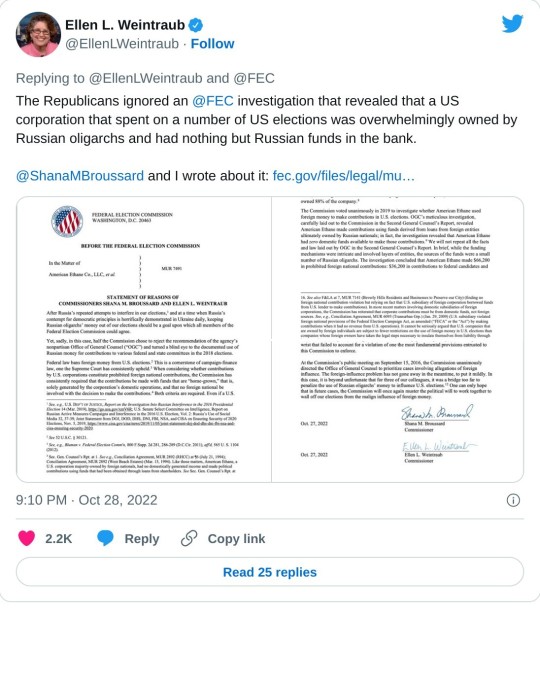
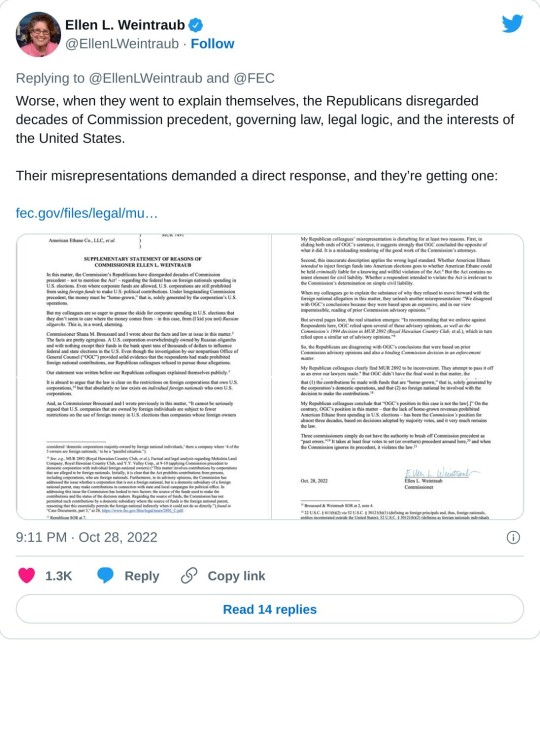
Anyone who follows campaign finance knows that the FEC has been toothless for years due to GOP commissioners’ opposition to any enforcement of laws designed to oversee money in politics. But Weintraub and Broussard suggest the agency hit a new low by letting the US firm, American Ethane, off with a deal in which it agreed to pay only a small civil fine.
Though based in Houston, Texas, and run by American CEO John Houghtaling, 88% of American Ethane was owned by three Russian nationals—Konstantin Nikolaev, Mikhail Yuriev, and Andrey Kunatbaev. The FEC report said that Nikolaev, an oligarch and Russian billionaire with close ties to Russian President Vladimir Putin, is the controlling shareholder. Separately, Nikolaev also underwrote efforts by Maria Butina, a Russian gun rights activist, to cultivate ties with the National Rifle Association officials and with associates of Donald Trump around the time of the 2016 election. In 2018, Butina acknowledged acting as an unregistered Kremlin agent and pleaded guilty to participating in a conspiracy against the United States. She was sentenced to 18 months in prison but was deported six months later.
According to lobbying disclosures, the company was seeking help from US officials in its efforts to sell US ethane to China and, in 2018, had hired a US lobbying firm, Turnberry Solutions, with close ties to former Trump campaign chief Corey Lewandowski. A year later, Lewandowki officially joined Turnberry, after previously disputing his connections to the firm. Turnberry, which traded on ties to Trump, shut down in 2021, months after he left office.
The FEC investigation began after it received a complaint citing press reports on American Ethane’s ties to Nikolaev and its donations to lawmakers. Weintraub and Broussard noted that the FEC found that American Ethane “made contributions using funds derived from loans from foreign entities ultimately owned by Russian nationals.” Federal law bans foreign funds in US elections, as well as direct corporate donations to candidates. American Ethane seems to have done both. The FEC found that the company made more than $66,000 in donations using money it got from offshore firms in the form of loans. According to an FEC general counsel’s report released last year, the owners of the offshore firms included Alexander Voloshin, a Russian politician and former state power company official, and Roman Abramovich, an infamous Russian oligarch and former owner of the British football powerhouse Chelsea. The money the company used to dole out donations ultimately came from the oligarchs, the FEC said.
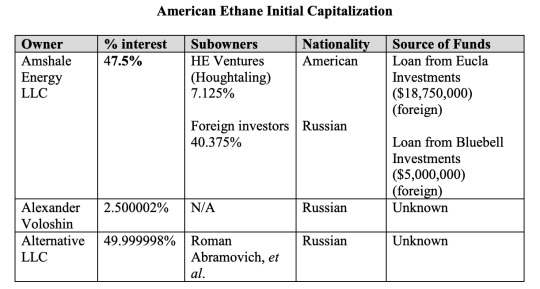
During its four-year investigation, the FEC found that the funds initially put up by Abromovich and other Russian nationals were then funneled to Republicans in Louisiana: Sens. John Kennedy and Bill Cassidy, a political action committee run by Kennedy, a leadership fund run by House Majority Whip Steve Scalise, a PAC backing Louisiana Attorney General Jeff Landry, and the campaigns of Reps. Mike Johnson and Garrett Graves. Other contributions went to state lawmakers. The report didn’t explain why the company focused on Louisiana but the state is home to many natural gas firms, and its lawmakers advocate for the industry.
The lawmakers who received funds have not been accused of knowingly taking Russian money, though the final report from the initial investigation noted, “American Ethane attempted to make more political contributions, but those recipient committees never deposited American Ethane’s checks.”
American Ethane argued that the funds the company first received appeared as loan to the American corporation. Therefore, they claimed the donations it made were not foreign. The FEC rejected that argument. But it still recommended the firm only pay $9,500 as a civil penalty.
“The foreign-influence problem has not gone away in the meantime, to put it mildly,” Weintraub and Broussard wrote. “In this case, it is beyond unfortunate that for three of our colleagues, it was a bridge too far to penalize the use of Russian oligarchs’ money to influence U.S. elections.”
#us politics#news#mother jones#2022#federal election commission#russia#russian federation#russian oligarchs#2018 elections#Ellen Weintraub#Shana Broussard#Republicans#gop#conservatives#American Ethane#Maria Butina#valdimir putin#Konstantin Nikolaev#Mikhail Yuriev#Andrey Kunatbaev#Turnberry Solutions#Corey Lewandowski#Donald trump#sen. john kennedy#sen. bill cassidy#rep. Steve Scalise#Jeff Landry#rep. Garrett Graves#rep. Mike Johnson#campaign finance laws
16 notes
·
View notes